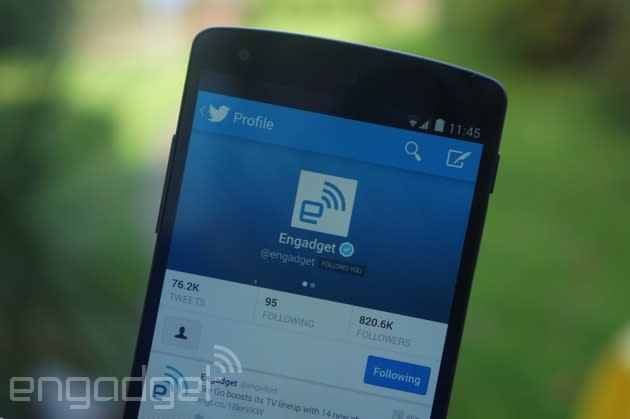Researchers are working on a lie detector to sniff out false tweets

Sure, some less-than-true statements on Twitter are innocuous, but the social media network's vast audience means it has huge potential to spread inaccurate, even dangerous, information. Citing examples like the 2011 London riots and accusations of vote-rigging during Kenyan elections, researchers at the University of Sheffield have introduced the concept of a lie detector to analyze information shared on Twitter and other sites.
The EU-funded project, dubbed Pheme, will sort online rumors into four categories: speculation, controversy, misinformation and disinformation. Additionally, Pheme will evaluate sources to determine their authority; tweets from the BBC would hold more weight than an unverified user's, for example. The system will also search for sources to confirm or deny information in a tweet, following social media conversations about a given topic to eventually determine what's true and what's false. Hypothetically, users would be able to view info about a rumor's accuracy via a virtual dashboard.
To test out of the project, scientists will be running trials with the Swiss Broadcasting Corporation and the Institute of Psychiatry at King's College London. Clearly, Pheme's goal is to verify news on a national and even international scale -- so your Twitter fibs about amazing weekend plans are safe, for now.

